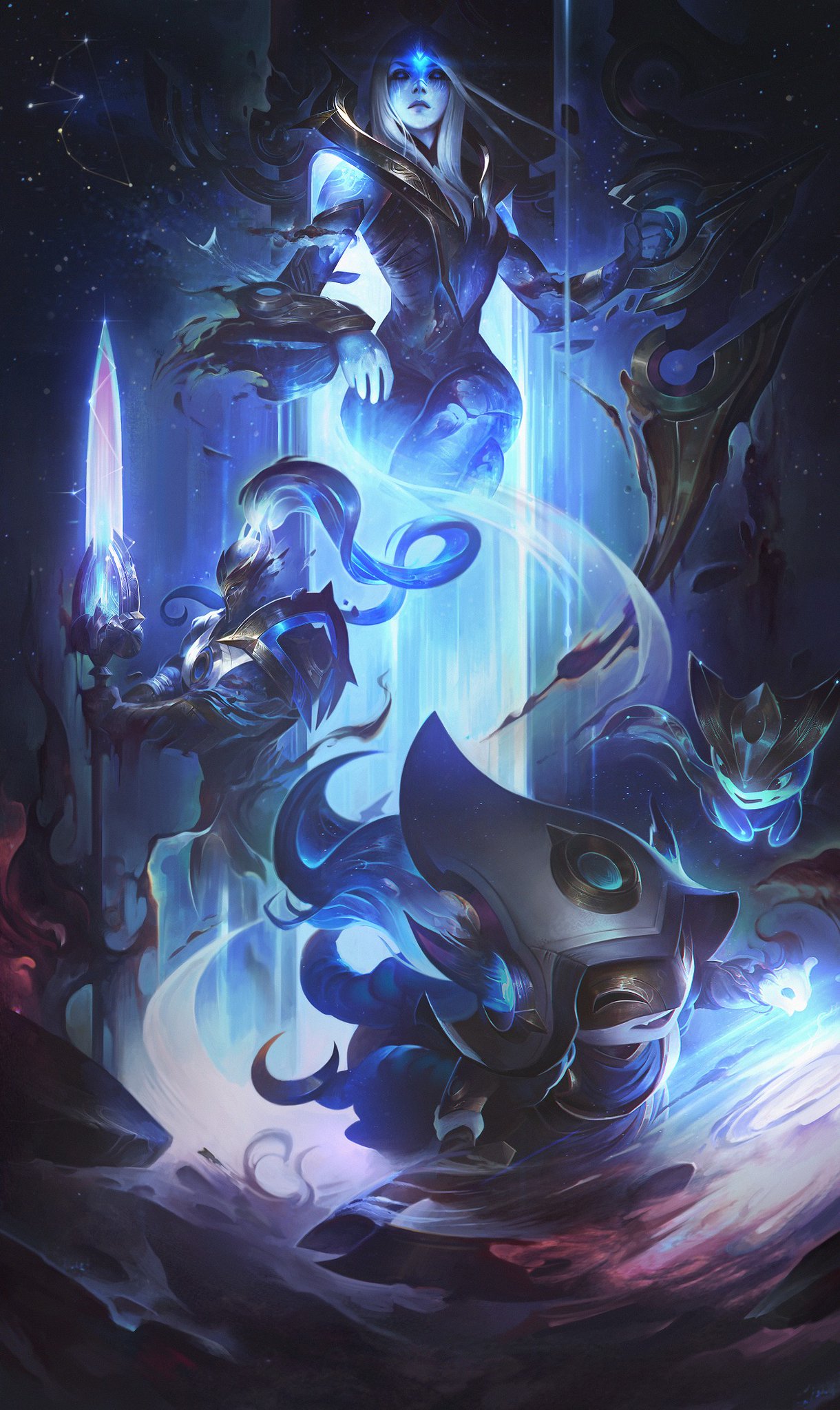Celestialism encompasses the collection of beliefs, rituals, and mythology of a common religion in Arethil. It was a popular public religion since before the Age of Uroghosh and has survived to the contemporary Age of Expansion. There are many sects and cults with significant differences yet many similarities.
Believers of the religion recognized seven major cosmic gods. Historic worship of these deities is found across Arethil, though with different and usually mixed with rituals of other local deities.
Believers of the religion recognized seven major cosmic gods. Historic worship of these deities is found across Arethil, though with different and usually mixed with rituals of other local deities.
Beliefs

There are common beliefs shared by many practitioners of Celestialism.
Celestialist theology is polytheistic with many gods and goddess and lesser beings in service to those deities. Astra is the queen of the gods and maintains some degree of control over them. However, she is not almighty and there are instances where she has been betrayed or confronted by another deity.
The gods, specifically the Cosmic Pantheon, heavily interacted with the Races of Arethil in the times before the Age of Uroghosh. Each god maintained a worldly domain and walked among mortals. There are a group of beings called Dark Ones that are on the level of gods yet they oppose the creations of the Cosmic Pantheon.
The Celestialist afterlife is described as a place among the stars where the spirits of the dead favored by the gods went to. The spirit would serve the god that favored him or her. Exceptional mortals, like the Orc Lord Gzoshkhad, that earned the favor of multiple gods received immortality to avoid disputes over their spirit. Those that failed to earn the favor of any god either ceased to exist or were enslaved by the Dark Ones upon death.
The Celestialism mythology largely consisted of stories of the gods and how they affected the world of Arethil.
Various religious festivals are celebrated by Celestialists. Many were specific to a certain deity. One common festival is the celebration of the coming end of winter during the solstice – especially popular in the colder extremes of Arethil.
Contemporary beliefs are that the Cosmic Pantheon left Arethil prior to the Age of Uroghosh and now resides in the stars to fight the Dark Ones.
Pantheon
Astra
Astra, also known as the Queen of the Stars, represents creation and leads the pantheon of Celestialist gods.
Aionus
Aionus, also known as the Sentinel, is the god of time and the creator of Portal Stones.
Drakon
Drakon, also known as the Dragon God, is the god of nature that created Arethil.
Tychan
Tychan, also known as the Emissary of the Gods, is the god of diplomacy that created the Common language.
Metisa
Metisa, also known as the Mother of Civilization, is the goddess that taught mortals how to use magic and how to create civilizations.
Nykios
Nykios, also known as the God of War, taught mortals how to fight to their utmost capabilities.
History
Pre-History
With the lack of written historical texts surviving prior to the Age of Uroghosh, not much is known about the creation of Celestialism or the validity of the claims that the gods walked among the Races. Scholars theorize that if the Cosmic Pantheon does not exist then the myths of Celestialism are likely based off of powerful, ancient mages.
Age of Uroghosh
Magical relics dated to the Age of Uroghosh have been discovered. These artifacts have been discovered in every inhabited region of Arethil – from Falwood to the Isles of Sheketh.
Due to this, scholars have concluded that Celestialism had been a world-wide religion prior to the Age of Uroghosh. Thus, the popular theory is that the conquests of Uroghosh disrupted the practice of Celestialism and that the orcs likely sought to end its practice entirely.
Due to this, scholars have concluded that Celestialism had been a world-wide religion prior to the Age of Uroghosh. Thus, the popular theory is that the conquests of Uroghosh disrupted the practice of Celestialism and that the orcs likely sought to end its practice entirely.
Age of Wonders
As the Age of Wonders began, there was a resurgence of Celestialism. Divine rule was used during this time by kingdoms that adopted Celestialism as the state religion. Many monarchs’ claims were that they were descendants of either legendary Celestialist heroes or even a god of the Cosmic Pantheon itself.
During this Age, the Astiax Order mages began a cult worshipping the Dark Ones. Even in domains that did not worship Celestialism, the Astiax Order was shunned and driven underground. Dwarven sources claim that the Astiax Order started a cataclysm that resulted in the creation of the Dread Marshes.
During this Age, several magical disciplines emerged that relied upon belief in the Cosmic Pantheon. The type of magic associated with this belief was normally reserved for use by Celestialist priests.
During this Age, the Astiax Order mages began a cult worshipping the Dark Ones. Even in domains that did not worship Celestialism, the Astiax Order was shunned and driven underground. Dwarven sources claim that the Astiax Order started a cataclysm that resulted in the creation of the Dread Marshes.
During this Age, several magical disciplines emerged that relied upon belief in the Cosmic Pantheon. The type of magic associated with this belief was normally reserved for use by Celestialist priests.
Believers
A partial list of believers in Celestialism:
- Jane, a Paladin
- Nezu, a young priest
- Kristen Pirian, a Dreadlord Initiate and devoted faithful of Aionus
This page has been seen 5,105 times.
-
-
Created by onLast updated by on
-
- Contributors:
